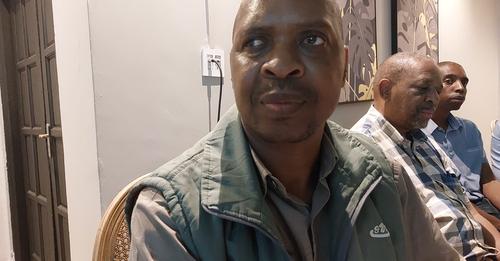The Geological Society of Zimbabwe (GSZ) Summer Symposium 2024 is set to be a pivotal event, showcasing the latest trends in geological exploration.
By Ryan Chigoche
The symposium, which will take place on November 1, 2024, at the Natural History Museum of Zimbabwe in Bulawayo, will bring together geologists, students, and enthusiasts for a day of knowledge-sharing, exploration, and networking.
Zimbabwe is rich in mineral resources, making exploration crucial for economic development. Despite its geological potential, the country remains under-explored, underscoring the need for innovative techniques and sustainable practices in the mining sector. Effective exploration can reveal new deposits of valuable minerals such as gold and platinum, attracting both local and foreign investment. This, in turn, can create jobs, stimulate economic growth, and promote responsible resource management. As Zimbabwe seeks to strengthen its position in the global mining industry, focused exploration efforts will be essential for unlocking the country’s full mineral potential and fostering sustainable development.
The symposium will feature discussions on various exploration techniques crucial for identifying mineral resources. These methods include geological mapping, geochemical surveys, and geophysical surveys, each offering unique advantages depending on the geographical region and specific minerals targeted. Technologies like remote sensing have revolutionized geological mapping, providing critical insights into fault activity and mineralization zones through advanced imaging and interpretation.
Speaking to Mining Zimbabwe, GSZ Chair Ernest Mgandani emphasized the value of modern technology in exploration.
“The Summer Symposium will provide invaluable insights into emerging trends in geological exploration. Modern information technology has gradually advanced traditional regional mapping surveys from digital mapping to an intelligent mapping stage characterized by big data and mapping intelligence. Deep-penetrating geochemistry is a core technology for deep resource exploration, with insights on emerging trends shared during symposium presentations. These include chemical extraction methods, such as enzyme leaching; physical separation techniques, like fine particle and magnetic separation; geo-electrochemical measurements using various power currents; gaseous and geogas measurements; biometric methods involving vegetation and bacteria prospecting; and hydrochemical assessments,” Mgandani said.
This year’s symposium will feature distinguished speakers and experts in geology. Attendees can expect engaging presentations covering a variety of topics, including geochronology, mineral resources, and innovative sustainable practices in geological research. The event aims to foster collaboration and discussion, allowing participants to share ideas and insights that could shape the future of geological studies in Zimbabwe and beyond.
Presentations will explore advanced techniques, including chemical extraction methods like enzyme leaching, physical separation techniques such as fine particle and magnetic separation, and geo-electrochemical measurements with various power currents. Other innovative methods to be discussed include gaseous and geogas measurements, biometric techniques such as vegetation and bacteria prospecting, and hydrochemical assessments.
Emerging technologies, particularly high-resolution airborne geophysical surveys and drone technology are gaining traction within the field. These advancements are increasingly being adopted by private sector players, enhancing the efficiency and effectiveness of geological surveys.
The GSZ promotes collaboration among academic institutions, government, and industry by welcoming all interested members to its events. The government is the largest employer of geoscientists within the Society, which also includes academic institutions and various private sector participants as institutional members. The Summer Symposium has become a key event on their calendars, drawing students, lecturers, private geoscientists, and government geoscientists together. This gathering provides a valuable opportunity for attendees to share knowledge and experiences, positioning the symposium as a central hub for advancing exploration initiatives.
Since its founding in 1981—after operating as a branch of the Geological Society of South Africa since 1962—the GSZ has played a vital role in the nation’s geological studies. The Society’s transition allowed for a focused approach to Zimbabwe’s distinct geological challenges and opportunities. As the largest employer of geoscientists, the government, alongside academic institutions and private sector members, views the Summer Symposium as a premier event that unites students, lecturers, and professionals alike.
.png)




